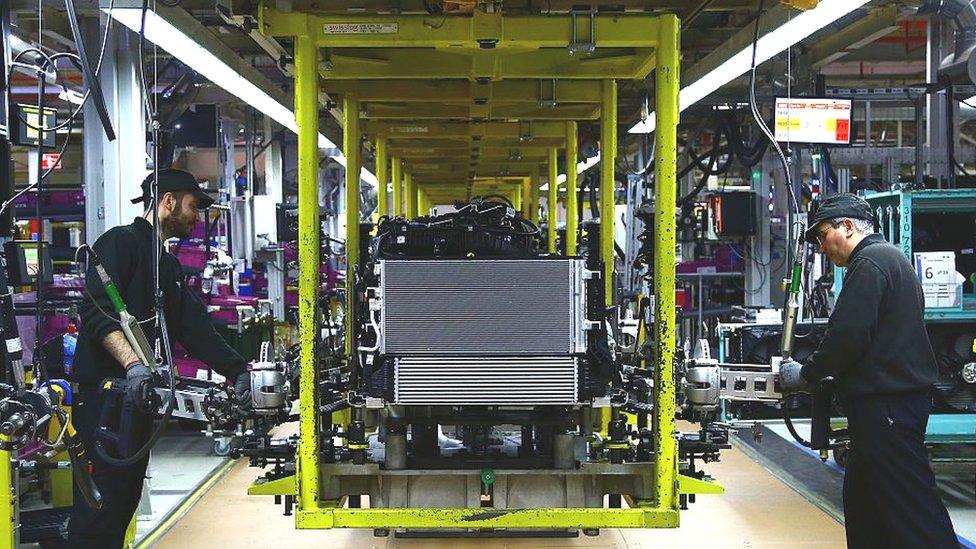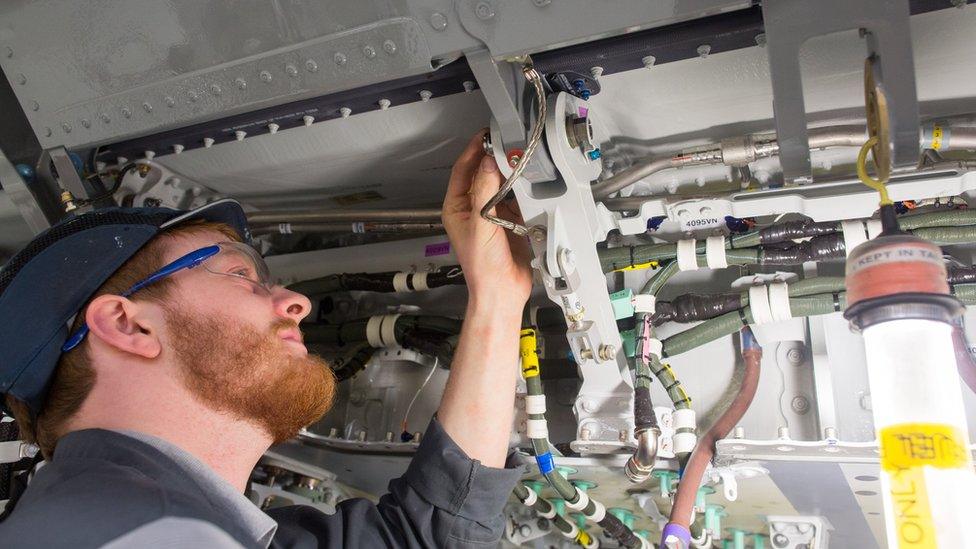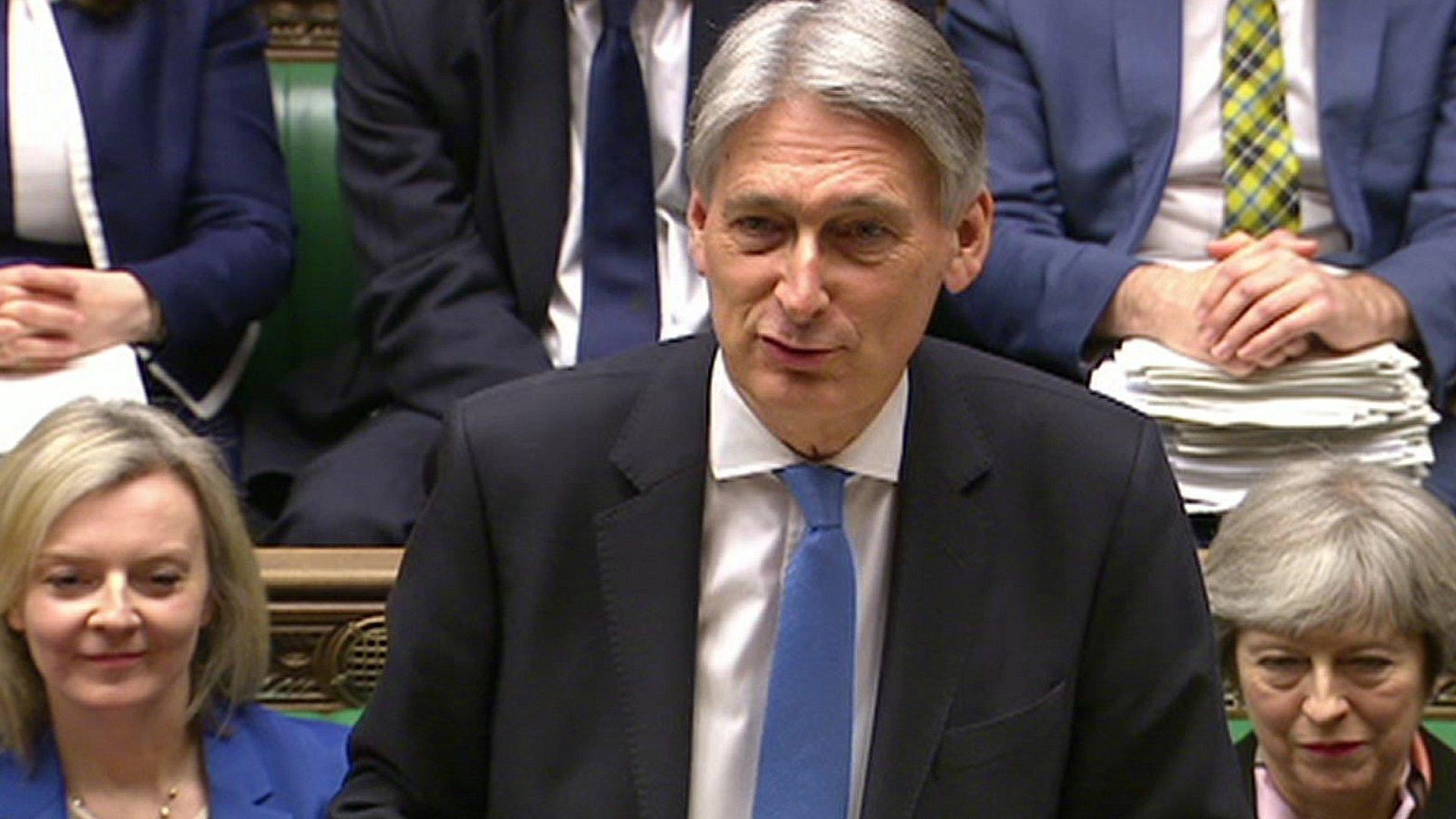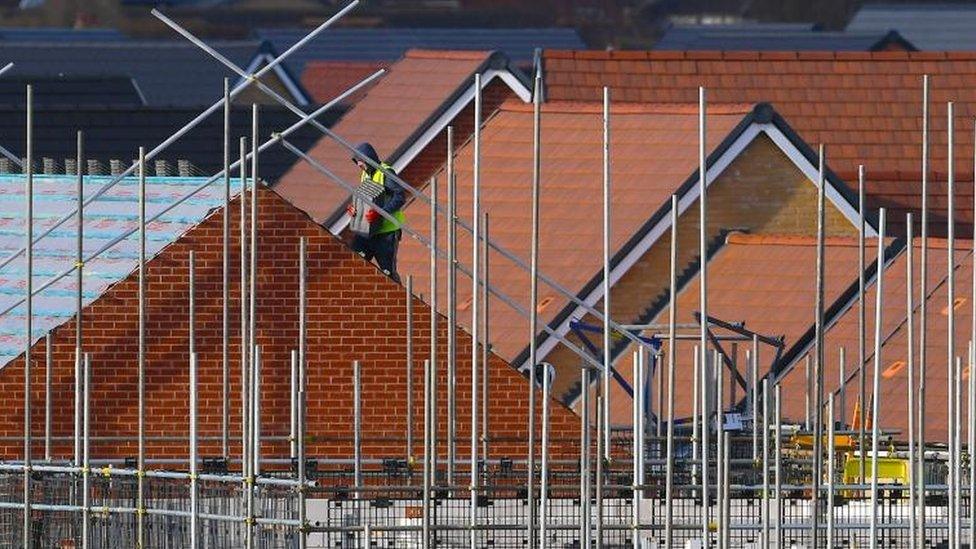UK growth to be slowest in G20 this year, says OECD
- Published
- comments

The UK economy will grow at a slower pace than any other major advanced or emerging nation this year, according to the OECD.
Ahead of the Spring Statement, the think-tank raised its UK growth forecast to 1.3% in 2018 amid a strengthening global recovery.
This is up from an earlier projection of 1.2%, but is the weakest in the G20.
The OECD predicts the fastest world growth since 2011 this year, helped by US tax cuts and spending in Germany.
The Paris-based organisation said the world economy was on course to expand at an annual pace of 3.9% over the next two years.
This is up from a forecast last November of 3.7% in 2018 and 3.6% in 2019.
However, it warned that the recovery risked being undermined by an escalation in trade barriers that would hurt growth and jobs.
Productivity boost needed
The OECD said higher inflation in the UK would continue to squeeze household incomes.
Weak business investment would also weigh on growth for the next two years amid uncertainty surrounding the Brexit negotiations.
It left its prediction for UK growth in 2019 unchanged at 1.1%. This would be the joint-slowest expansion alongside Japan.
City and academic economists expect the UK economy to expand at an annual pace of 1.5% over the next two years, and Chancellor Philip Hammond is expected to reveal a more optimistic outlook in updated official forecasts on Tuesday.

Álvaro Pereira, the OECD's acting chief economist, urged the UK to introduce more policies to boost living standards, as well as address regional disparities.
"We do think that it's very important for the UK to invest more in productivity enhancing infrastructure," he said.
"A lot of investment happens in London, it doesn't happen in many other areas. More needs to be done to enhancing productivity in the rest of the UK."
The OECD has been criticised for its pessimistic economic forecasts before and after the EU referendum.
Three months after the UK voted in June 2016 to leave the EU, it predicted economic growth of just 1% in 2017. However, official figures show the economy expanded by 1.7% last year.
Mr Pereira said the OECD had been "fairly consistent" in its forecasts.
He said: "[Ahead of the referendum] we were talking about rates of growth of around 2% for the UK. Right now we are talking about substantially lower rates of growth. We have not changed our view on Brexit."
Global optimism
The OECD's latest economic outlook showed all but one G20 nation - Russia - was set to grow at a faster pace this year than predicted last November.
Mr Pereira said global growth would be led by a recovery in investment, while an increase in trade volumes of 5.2% in 2017 was expected to continue in 2018.
He said: "Investment is coming back, and so this is very good news for good new for jobs and growth across the economies."
However, the think-tank warned that trade barriers posed a threat to growth,
Last week, President Trump signed controversial orders imposing heavy tariffs on steel and aluminium.
The European Commission vowed to retaliate if hit by the tariffs.
Mr Pereira said a global trade war would be harmful for the global economy.
"Any escalation, any retaliation or a tit-for-tat type of scenario would be very damaging," he said.
"I think it is very important to avoid escalation and to initiate a strengthening in the global dialogue to solve not only the problem for steel but to avoid bigger repercussions in terms of trade."
- Published13 March 2018

- Published9 March 2018
